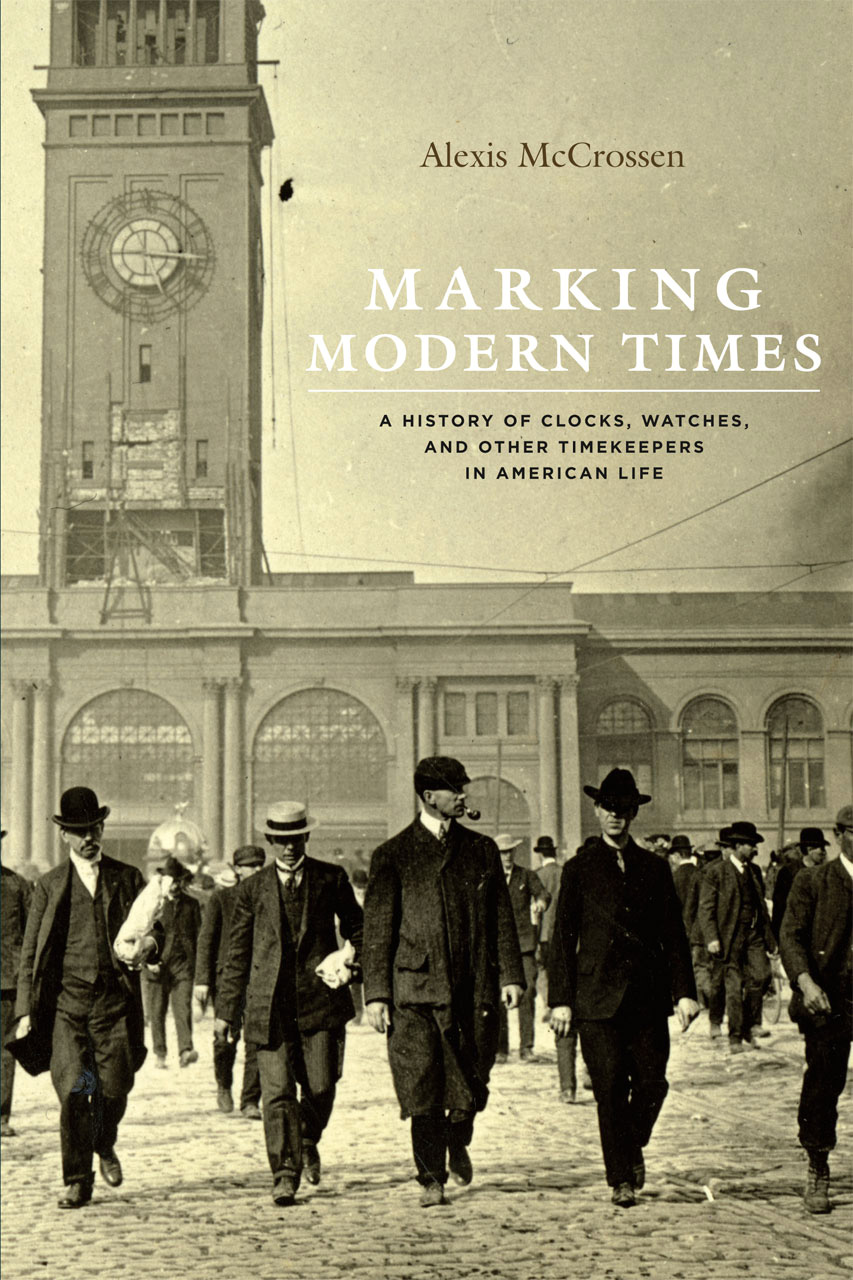Steve Blow:
SMU professor captures time in a book
In 'Marking Modern Times,' SMU Associate History Professor Alexis McCrossen relates how the American preoccupation with time led people from across social classes to acquire watches and clocks.
Quick, what time is it?
That may be an unwelcome question in the midst of an extra long and lazy summer holiday weekend.

Of course you do. You’re American. And we Americans take time very seriously.
Seriously enough, in fact, that Southern Methodist University history professor Alexis McCrossen has managed to write a whole scholarly book on the subject: Marking Modern Times: A History of Clocks, Watches and Other Timekeepers in American Life.
OK, it’s not Fifty Shades of Grey. But it’s all kinds of interesting.
Timekeeping was once so imprecise that sending time backward was no big deal at all. “The U.S. Senate had a clock it operated by, but sometimes they couldn’t get their act together to pass legislation by a midnight deadline. The attendant would just set the clock back,” Alexis said.
“Before the Civil War, they had no problem at all doing that. By the 1890s, they couldn’t do it any more. Timekeeping had become too precise.”
I like Alexis’ offbeat choices in subject matter. I wrote about an earlier book of hers that examined the history of Sundays in America. We forget there used to be very strict standards on what you could and couldn’t do on the Christian Sabbath.
It was research for the Sunday book that inspired the timekeeping book. “So many historical sources talked about Sunday as ‘the maker of time,’ ” she said.
The idea was that without the God-given seventh day of rest, time would have no meaning and days would pass in an undifferentiated mass.
“Today, no one would say Sundays give time meaning. We would say it’s the clock,” she said.
We live and breathe by the clock now. But for most of human history, the time of day was a vague notion based on where the sun stood in the sky. And that was enough.
 Alexis McCrossen |
Alexis said it wasn’t until the Civil War that Americans began to fixate on more precise measurements. “It became clear to the officers of the North and the South that time was important in coordinating troop movements. Battles were won and lost because clocks broke,” she said.
On top of unreliable clocks and watches, there was no standard time. Each town set its own time. It could vary widely, even among neighboring towns.
She said the real necessity for precise timekeeping came with the arrival of the railroads. “Originally, timetables were based on the time in the departing city. So to catch a train in Fort Worth, you had to know Dallas time. It was easy to miss your train.
“And worse than that, trains shared the tracks. Timekeeping errors led to some terrible accidents,” Alexis said.
The railroads’ influence finally prompted the adoption of standard time and time zones — all based on the location and calculations of the Royal Observatory in Greenwich, England. But since 1972, atomic clocks keep the official time.
And Americans want to know it. “We’re a country that is driven to maximize our time,” Alexis said.
In that vein, she was initially troubled that this book didn’t spring more quickly from the Sunday book. It was 13 years in the making.
But in that time, she got married. She had a daughter. She lost her father. And she became wiser about the subject matter.
“I think I came to better understand what it means to live in time — that it passes, often quickly,” she said. “That babies grow out of diapers and children out of car seats and once seemingly invincible parents and friends grow sick and frail.”
Books make us smart about time, but it takes life to make us wise.